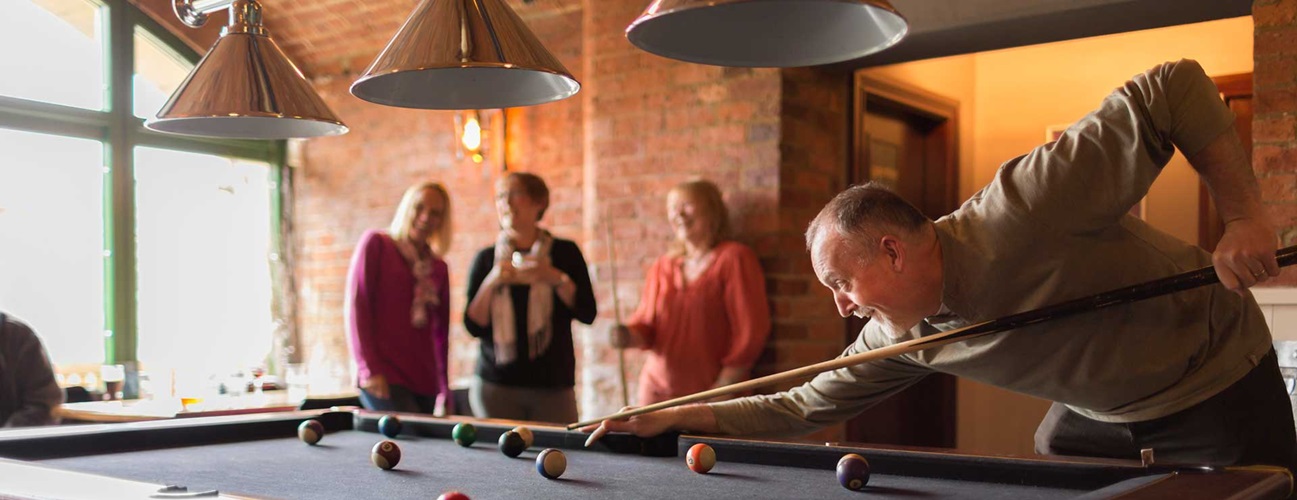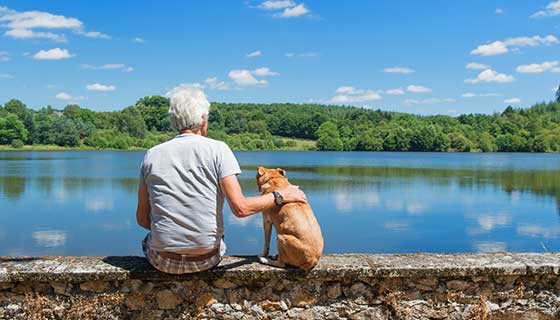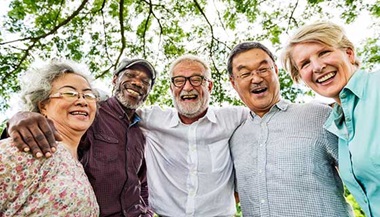A League of Your Own
Is play part of your plan for health? Leisure activities, particularly group activities, are a vital part of keeping adults healthy in mind and body, says Jeremy Barron, M.D., medical director of the Beacham Center for Geriatric Medicine at Johns Hopkins. But according to the Bureau of Labor Statistics, time spent on leisure and sports activities over the weekend peaks in our late teens and then diminishes as adult responsibilities monopolize our free time.
To help make play a priority in your life again, check out these benefits of indulging in recreation as an adult. Then try joining a league or group at the local YMCA or community center. Better yet, start a recess group in your neighborhood. A meetup.com group in Austin, Texas, gets together for “adult recess” to play tag and kickball, while in Portland, Oregon, a self-proclaimed group of “youthful-minded adults” created the Recess Time Sports Leagues to bowl and to play dodgeball, kickball, Ping-Pong and mushball.
Improve productivity.
“With media connectivity, people are more accessible and therefore spend more time doing work,” says Barron. “But too much time working and plugged in burns people out. It backfires: Workers who don’t take breaks turn out to be less happy and less productive.” In fact, start-up company Fundable factors in a 30- to 45-minute recess every day to allow employees to disconnect and recharge for a fresher mind.
Keep your brain sharp.
Johns Hopkins researchers determined that adults who participated in a variety of activities experienced an 8 percent to 11 percent reduction in the risk of verbal memory impairment. “There has been a question of whether we can prevent cognitive decline and dementia by engaging in social activities that aren’t necessarily cognitive,” explains Barron. “This research showed that social activities improved cognitive reserves even if they didn’t tax the mind.”
Connect with real friends.
In the Internet age, social activity has come to imply how many times you post on Facebook or Twitter. But Barron says that technology can’t replace real human contact. “Relationships through the Internet are not as beneficial as face-to-face contact, where you can see someone smile and laugh,” he explains.
Stay motivated for fitness.
Getting together with a group of people to do something active reduces the odds that you will turn into a couch potato. “People are more likely to stick with something if there is peer pressure or peer expectation; otherwise, participation will drop off quickly,” says Barron. “To keep people engaged and motivated to be active, you have to have a buddy.”
Definitions
What the Experts Do Meet One on One
Not everyone has the time, or the inclination, to join a league or group. But you only need one person to reap the benefits. In fact, some experts believe that you can get more out of interacting with an acquaintance than with your inner circle of friends and family—people outside your closest contacts can offer you new ideas and perspectives. “Twice a week I meet someone to study the Talmud,” says Barron. “Those conversations and experiences are often the highlights of my week.”






